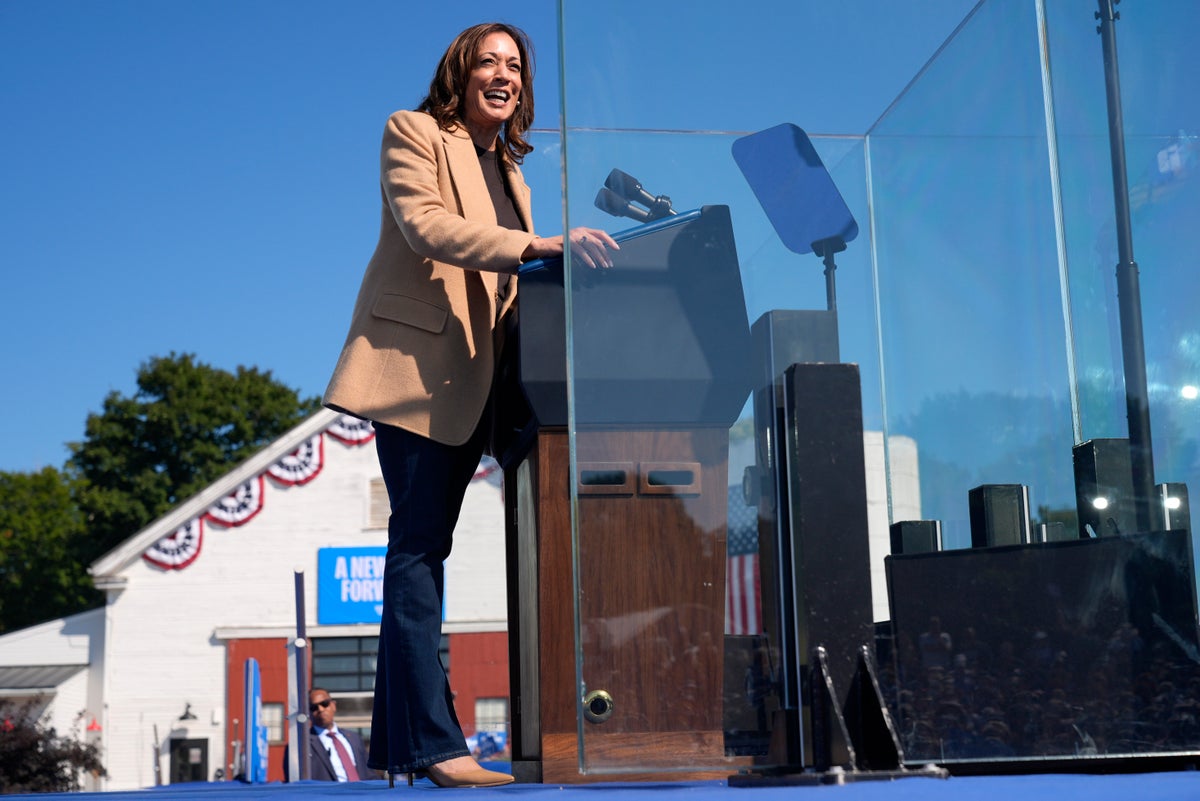
Support truly
independent journalism
Vice President Kamala Harris is rolling out an economic plan that looks to capitalize on America’s penchant for entrepreneurship with an ambitious proposal for small business tax breaks and incentives.
Harris unveiled her plan on Wednesday during a campaign stop in North Hampton, New Hampshire at one such small business, the Throwback Brewery. There, co-founder Nicole Carrier credited the Biden-Harris administration with funding its expansion through the American Rescue Plan Act and other programs.
Carrier said she and the vice president share “core values” as she introduced Harris.
“She represents the future, she's smart, she's confident, and she leads from a place of goodness, which is really what we care about most,” she said.
The small business owner also praised Harris’s small business plans as making it “easier for more dreams to become a reality” by cutting red tape around starting and growing operations like hers.
After taking the stage to Beyonce’s “Freedom,” Harris said small businesses like the brewery are “essential” to her economic vision of America, which she described as an “opportunity economy” in which “everyone can compete and have a real chance to succeed.”
The vice president said she is setting an “ambitious” goal of having 25 million new small businesses start up during her first four years in office.
“We’re going to help more small businesses and innovators get off the ground ... To help achieve this, we will help lower the cost of starting a new business,” she said, calling small businesses “an essential foundation to our entire economy.”
Harris said she would expand the existing small business tax deduction to $50,000 per year for new small businesses, calling the expanded deduction proposal “essentially a tax cut” to “ help more small businesses and innovators get off the ground.”
“To help achieve this, we will lower the cost of starting a new business. So here's the thing, on average, it costs about $40,000 to start a new business in America. That is a great financial barrier for a lot of folks, and it can hold entrepreneurs back, and the current tax deduction for a startup is just $5,000,” she said.
The vice president also said her administration would make it “cheaper and easier” for small businesses to file taxes by creating something similar to the standard deduction that lets many Americans file their taxes with a shortened version of the normal individual income tax form.
“Let's just take away some of the bureaucracy in the process to make it easier for people to actually do something that's going to benefit our entire economy,” she explained.
Continuing, Harris argued for making the tax code more fair to small businesses by making larger corporations pay a “fair share” of tax by setting what she called a “billionaire minimum tax”.
“And while we ensure that the wealthy and big corporations pay their fair share, we will tax capital gains at a rate that rewards investment in America's innovators, founders and small businesses. So here's the detail: If you earn a million dollars a year or more, the tax rate on your long term capital gains will be 28 per cent under my plan. Because we know when the government encourages investment, it leads to broad based economic growth, and it creates jobs which makes our economy stronger,” she said.
She contrasted her proposal with that of Donald Trump, who with the aid of a Republican Congress enacted massive corporate and high-income tax cuts in the 2017 Tax Cuts and Jobs Act.
She said Trump’s plan to make those tax cuts permanent would blow up the federal deficit by $5 trillion in addition to the $2 trillion deficit hole he created with that 2017 legislation.
“We know how to count,” Harris said, adding that Trump’s proposal to unilaterally impose a 10 per cent tariff on all imported goods would amount to what she called “a national sales tax on everyday products and basic necessities, which will skyrocket the cost for families and small businesses.”
“We are here to tell him and them: we are not going back. We're not going back... and we will move forward, because ours is a fight for the future and and it is a fight for freedom,” she said.







